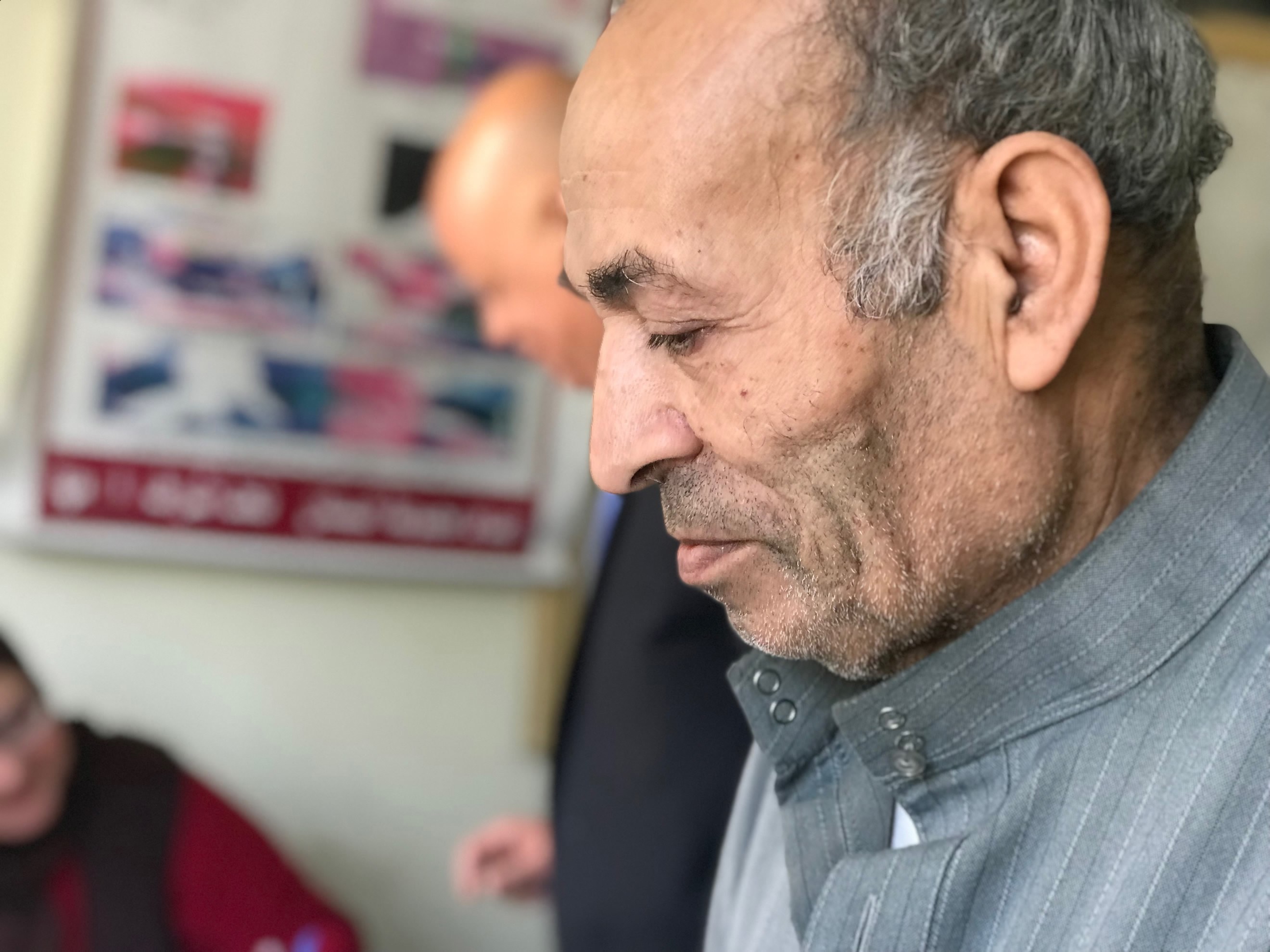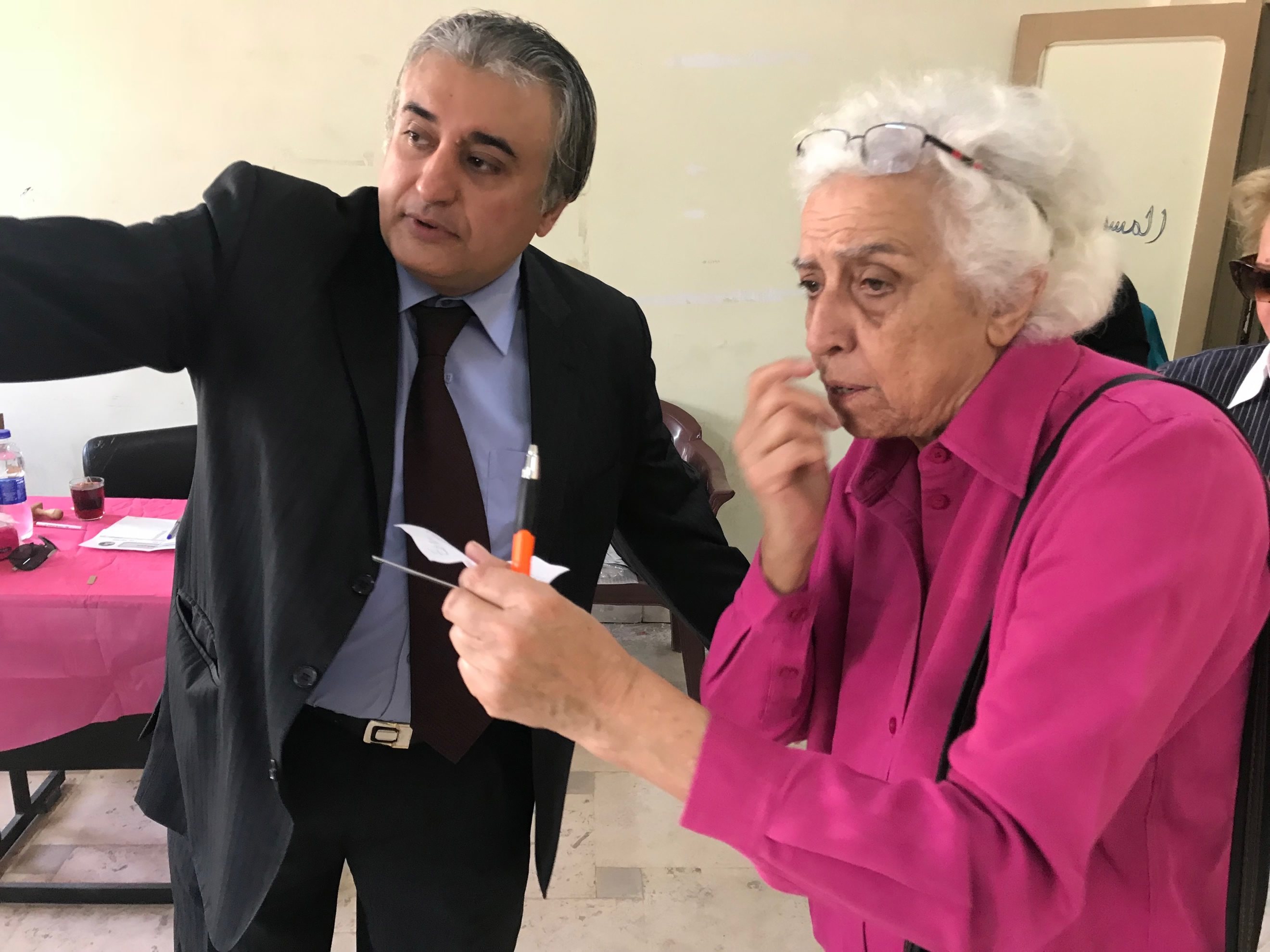
Politics
17:56, 29-Mar-2018
Egypt's Sisi secures second term in landslide
By Adel El Mahrouky

Initial results of the 2018 Egyptian Presidential election showed a strong victory for the country’s President Abdel-Fattah al-Sisi. The landslide win was expected. To the authorities, what mattered the most in the race was the turnout. They held the vote over three days to push for participation.
Early polls show that nearly 39 percent of the electorate participated in the election. It’s an eight-percent drop from the 2014 race, which brought Sisi to office. Back then the Egyptian President won with 24 million votes. The initial results suggest three million less voters for the Egyptian President.
“I was expecting less turnout. What I’ve seen in the election this year exceeded my expectations,” said Lofty Manfalouty, a monitor on the vote counting from Sisi’s campaign.

An Egyptian voter waits to receive his voting card. Senior voters seemed to dominate the turnout. /CGTN Photo
An Egyptian voter waits to receive his voting card. Senior voters seemed to dominate the turnout. /CGTN Photo
During his first term, the Egyptian President led massive economic reforms. He reduced government subsidies and floated the Egyptian pound. That has led to phenomenal price hikes, with inflation rates reaching 35 percent month on month. In turn, Sisi’s popularity was affected.
The outstanding results this year were the invalid votes. Estimated at nearly seven percent, it’s more than double what Sisi’s competitor Mousa Mostafa Mousa has amassed.
Observers believe the invalid votes could reflect the voice of the opposition.
“I was surprised to see the high numbers of invalid votes. We will analyze that phenomenon scientifically. Still, I believe they are not mistakes; they are deliberate. You can call them opposition voices or anything else you want, it’s deliberate,” said Manfalouty.
The lack of competition in the presidential race has driven the country's youths away from the vote.
"Honestly I won’t vote. I see many others already voting and the result has been known from the first day. What difference will my vote make?" said Yasmine Madbouly, a 23-year-old university student. "My parents voted and they are telling me that I must, but I won’t go."

A judge gives instructions to an Egyptian voter about the procedures of casting her vote. /CGTN Photo
A judge gives instructions to an Egyptian voter about the procedures of casting her vote. /CGTN Photo
There are others who don’t agree with Yasmine. Ahmed Qassem, a 24-year-old university student in Al-Areesh, North Sina, has seen the threat of insurgency with his own eyes. He witnessed the efforts the Egyptian army led to fight the militant groups, like ISIL, who vowed to attack ballot stations.
“One vote will make a difference. It doesn’t matter whom you support. Most of my friends didn’t vote. Many didn’t go because they are desperate; they see that nothing will change. They feel the result is known, but we must have a say. It’s why I voted.,” Qassem said.
Despite repetitive threats from terrorist groups like ISIL, Egypt managed to secure the presidential election. The vote lasted for three days without any report of an attack.
Army and police forces secured more than 13,000 ballot stations.
The Egyptian armed forces and the police have worked together in a nationwide plan to maintain security across the county. Buffer zones have been created around every voting station. No vehicles were allowed to enter, and only voters were permitted in after checking their national IDs.
Tight security measures were taken at the entrances of ballot stations.
Nearly 60 million Egyptians were registered to vote in more than 13,000 ballot stations across the country. For three consecutive days, 18,000 judges and 110 government employees monitored and regulated the voting procedures.
7547km

SITEMAP
Copyright © 2018 CGTN. Beijing ICP prepared NO.16065310-3
Copyright © 2018 CGTN. Beijing ICP prepared NO.16065310-3